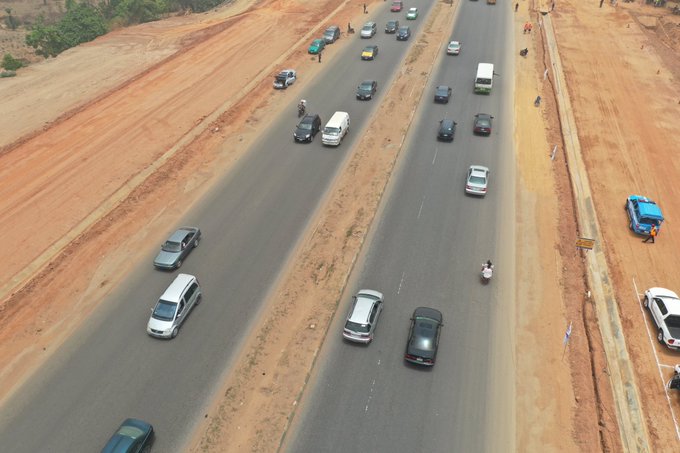The Federal Government has taken a major step towards repaying a $112.53 million loan from China Exim Bank, with the inauguration of a committee to implement a cashless tolling system on the Abuja-Keffi-Akwanga-Makurdi roads.
The loan was used for the construction of the Abuja-Keffi expressway and the dualization of the Keffi-Akwanga-Makurdi road, with China Harbour Engineering Company executing the project. This road network is a vital link between the Federal Capital Territory and the North-Central region, and its improvement is expected to drive economic growth by enhancing transportation infrastructure.
Speaking at the inauguration ceremony in Abuja, the Minister of Works, Engr. David Umahi, emphasized the importance of the cashless tolling system. He noted that it was a key component of President Bola Ahmed Tinubu’s “Renewed Hope” agenda, aimed at revitalizing Nigeria’s road infrastructure and stimulating economic development.
“This cashless tolling system is one of the cardinal strategies of President Bola Ahmed Tinubu to meet the desires of Nigerians in the area of road infrastructure development,” Umahi said.
The minister explained that the loan agreement with China Exim Bank included a provision for tolling the roads to recover the funds needed to repay the loan. The tolling system will enable the Federal Government to recoup the money invested in the project, ensuring that the debt is repaid on time.
The Abuja-Keffi expressway and the Keffi-Akwanga-Makurdi roads are critical transportation routes that serve as the primary link between Abuja and other parts of North-Central Nigeria. The project was funded 85% by China Exim Bank, with the Nigerian government contributing 15% of the funding through counterpart financing.
The roads have long been plagued by heavy traffic, poor conditions, and frequent accidents, making the recent improvements a welcome development for both commuters and businesses. The project has been hailed as a game-changer for the region, promising to reduce travel times, improve safety, and promote commerce.
According to experts, the introduction of a cashless tolling system will modernize Nigeria’s highway management, ensuring efficient revenue collection and greater accountability. Tolling is also expected to ease the financial burden on the government, allowing the funds to be used for other critical infrastructure projects across the country.
The inauguration ceremony for the Cashless Tolling System (CTS) Committee took place at the Ministry of Works headquarters in Abuja on October 18, 2024. Minister Umahi expressed confidence in the committee’s ability to develop a robust implementation framework for the tolling system.
“The committee’s task is to develop a cashless tolling system implementation framework that will revolutionize highway management in Nigeria,” Umahi said.
He further stated that the initiative is part of the government’s efforts to create a sustainable transportation ecosystem in Nigeria. This is in line with the Highway Development and Management Initiative (HDMI), which aims to attract private sector investment in road infrastructure and create jobs for Nigerians.
Umahi outlined several key responsibilities for the newly inaugurated committee. These include:
– Developing the cashless tolling system implementation framework.
– Recommending the establishment of relief stations along the roads to provide rest areas for travelers.
– Addressing the challenges of implementing a cashless toll collection system in the Nigerian environment.
Umahi also called for the installation of modern security features along the route, including CCTV cameras and solar-powered lighting. “The idea is to ensure maximum security on our roads,” Umahi explained. He added that part of the goal is to guarantee a 10-minute response time in case of emergencies on the highways.
One of the innovative aspects of the project is the development of relief stations along the route. These stations will include supermarkets, clinics, security outposts, and vehicle repair services, providing travelers with essential services during their journey.
“The relief stations will ensure that travelers can rest, refuel, and receive medical care if needed,” Umahi explained. “We will also have tow trucks stationed at strategic points to assist stranded vehicles.”
These plans are expected to improve the safety and convenience of traveling on the Abuja-Keffi-Akwanga-Makurdi road, making it one of the most secure and well-managed highways in the country.
The tolling system is expected to provide a significant economic boost, as improved infrastructure leads to increased trade and movement of goods. According to economists, efficient road networks are essential for stimulating economic activity, particularly in developing regions like North-Central Nigeria.

